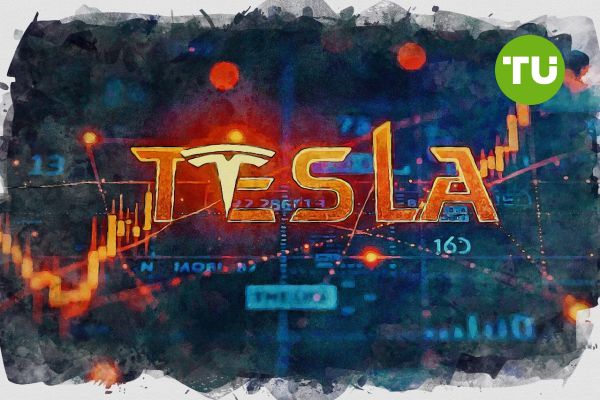Tesla stock drops 6.8% as Musk political pivot and policy risk deepen selloff
 Analysts estimate that Tesla could lose up to $2 billion annually in regulatory credits alone
Analysts estimate that Tesla could lose up to $2 billion annually in regulatory credits alone
As of July 8, Tesla stock is trading at $293.94, down 6.8% over the past 24 hours, marking one of its steepest single-day declines in recent months.
The drop reflects technical indicators and heightened market anxiety surrounding CEO Elon Musk.
Highlights
- Tesla shares dropped 6.8% to $293.94, breaking below major moving averages and signaling a bearish trend.
- Elon Musk’s formation of the "America Party" and loss of EV regulatory credits have intensified investor concerns.
- Key support at $285 is in focus, with further downside likely if it fails to hold.
Tesla's recent technical breakdown is significant. The stock has fallen below both its 50-day and 200-day moving averages, which had previously acted as dynamic support zones. The 50-day MA stood near $318, and the 200-day MA around $267, placing current price action squarely in a no-man’s-land technically. The breach of these levels has sent bearish signals to traders, triggering stop-loss selling and accelerating downward momentum.
The relative strength index (RSI) dropped sharply and now hovers around 35, the lowest reading since early June. This indicates increased selling pressure and suggests that the stock is not yet in oversold territory, leaving room for further downside. Additionally, Tesla has broken down from a flag pattern that formed after a brief relief rally in late June. The flag was viewed by many technicians as a possible continuation signal, but the recent breakdown invalidates that bullish outlook.

Tesla stock price dynamics (May 2025 - July 2025). Source: TradingView
Key support levels to watch are $285, followed by $265 and then $225. The $285 level is psychologically important and marks the base of the flag pattern as well as a previous consolidation zone. If this level fails to hold, bears are likely to target $265, which corresponds to a major swing high from October 2024. A breach of that could open the door to a decline toward $225, which served as a floor during March and April of this year.
Market context: Musk’s political pivot rattles investors
The fundamental backdrop has shifted dramatically over the past few days. Elon Musk's decision to launch a third political party, the "America Party," has raised eyebrows across Wall Street. Investors are increasingly concerned that Musk's growing political engagement could distract from Tesla’s core business operations, particularly as the company prepares to unveil its highly anticipated robotaxi platform in August.
The timing of this move has compounded anxieties already present due to falling deliveries and regulatory headwinds. Tesla’s Q2 2025 vehicle deliveries were down 13.5% year-over-year, reflecting both waning demand and increased competition in the EV space. Additionally, Tesla recently parted ways with Rohan Patel, its Vice President of Public Policy and Business Development, removing a key figure responsible for navigating Washington’s complex regulatory environment.
The backdrop has worsened further with the passage of President Trump’s "Big Beautiful Bill," which rolled back EV tax credits and altered carbon emissions incentives. Analysts estimate that Tesla could lose up to $2 billion annually in regulatory credits alone, significantly impacting the company’s profitability.
Downside likely unless support holds above $285
Given the technical damage and a fragile macro-political environment, TSLA is likely to remain under pressure in the short term. If the stock breaks below $285, the next targets become $265 and $225, both of which are historically significant support levels. Unless Tesla can stage a strong bounce above $318 in the coming days, the near-term outlook remains bearish.
For now, investors should prepare for continued volatility and closely monitor political developments involving Musk, which could have material implications for regulatory risk and public perception of the brand.
Tesla's market narrative is shifting from business fundamentals to CEO Elon Musk's political ventures, including launching a new party and clashing with Donald Trump. This has raised investor concerns about potential distractions and weakened execution amid mounting challenges in the EV sector.













































































































































